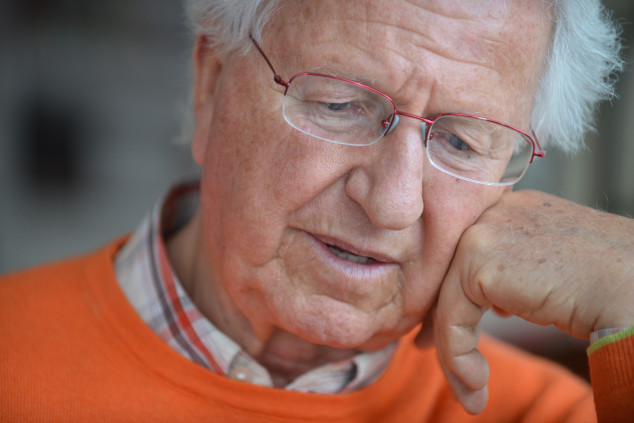Dear Dr. Joy,
I am a 20 years old guy. I have faced certain things in life which makes me feel that I am a loser. Please read the content with patience, and suggest something.
From my childhood, I’ve always been too nice to everyone and obeyed every single thing my parents had told me. I am from a middle-class family and have always learned to be happy with what my parents could afford me. I never messed up with any person, yet I’ve passed through several storms in life.
I am very thin since childhood. I’m not too much smart and have no attitude. Although I’m intelligent and have spent most of my time studying, I am not much good in sports. Due to these facts, I’ve been teased and bullied several times in school. My mom used to tell me that it was totally my fault that I could not fight them. But physically I was too weak to fight, and also too young to join a gym. After completing class 10 examinations, I joined another school. But before leaving the old school, I challenged my so-called friends that one day I’ll be much superior to them from all aspects.
In my new school, I made new friends and was quite happy with my new life. But suddenly another storm hit my life. I came to know that my dad had been cheating on my mom since ages! My mom also came to know of the truth, and my family life became like hell. My dad started abusing my mom in front of me. I tried my best to remain beside my mom at the time of crisis. But I became too much depressed with the everyday problems at home, and could not study even though I wanted to. As a matter of fact, my class 12 results were not much good, and I ended up joining a mediocre engineering college forgetting all my dreams.
In my college life, I gradually came out of my depression. I made many new friends, and started to dream again in life. But then I fell in love with my best friend! She was aware of my feelings but used to give mixed signals. When I proposed her, she rejected me saying that she likes me but don’t love me, and wanted to remain as best friends. I agreed, although my feelings had not gone for her. Some days later, she told me that she was having an infatuation for another guy in our college. Recently that guy proposed her in front of me, and she was not sure what she would do. Although I was crying deep inside, I smiled and said,”If you like him, then go for him, and you would be happy.” She then agreed his proposal, and now they are happy couples at college.
All of these have again made me depressed. I sometimes feel that I’m not worthy of getting anything in life. I feel that my friends are showing sympathy towards my fu*ked up life. Although I badly want to move on and fight back everything, I end up feeling like a loser. I will be having my campussing within a few months.Please suggest something for me at this stage of life. Can I ever be able to win in life?
Jeanine Joy’s advice:
Okay, most people don’t have much of what they want at 20. Be easy on yourself about that and it’s not true that you haven’t done anything good. By your own admission you’ve been a good son, especially to your mother. That is not my definition of a loser.
Also, in general, young women don’t understand the value of a nice man the way women do when they are a little older. I dated a nice man for a while at the time I turned 18. He treated me very well and I really liked him but the bad boys were more attractive to me then. But after having significant relationship issues, including violence against me, I learned to greatly value the benefit of a nice man. My perspective about niceness changed and one of the most important criteria for my willingness to date anyone was his niceness. If he wasn’t nice to people like the waitress who served us in a restaurant I was done with him.
At 20, many young women will not have realized the value of a nice man yet. Certainly some are wiser than I was at that age, but more will be as their lives unfold.
Regarding, “I challenged my so-called friends that one day I’ll be much superior to them from all aspects.” I strongly encourage you not to do things to show others how good you are.
Do things because they are what you want to do.
Decide who you want to be and be that because it is who you want to be.
Other people’s opinions are not a good reason to justify what we choose to do or not do with our life. It is our life. Let others do with their life what they wish to do. Be the best you that you can be and you get to define who you are.
No matter where you are or who you’re being, at any time you can begin moving toward becoming more of who you want to be. But you can’t win unless you believe you can win. The ability to keep going and learn what your experiences is critical. There are so many people who have failed, often multiple times who kept going and eventually met with great success.
You’d be hard pressed to find a person who is very successful who does not have in his or her background trials and tribulations and failures. If you read stories about most well-known people you will find that they failed before they were successful. For example, Milton Hershey [1], who invented the Hershey Chocolate went bankrupt more than once before he became successful.
The one who wins is the one who learns from what didn’t work, applies that knowledge and most importantly, the one who continues trying.
Don’t apply a negative label to yourself. Labeling yourself a loser can become a self-fulfilling prophesy. A better way to view your life is that you’re not where you want to be yet but you’re learning how to move in the direction you want to go.
Even with your engineering. If that isn’t what you want to do there are other paths you can take. Decide what you want and then move in the direction of it. Don’t worry about whether it is what others do. Do what feels best to you.
If you feel stuck, you’ll be stuck.
If you feel you can find a way to do and be what you want to do and be, you’ll find a way.
I wish you the best.
Footnotes
[1] http://www.biography.com/people/…
Originally posted on Quora where I am a 2017 Top Writer






